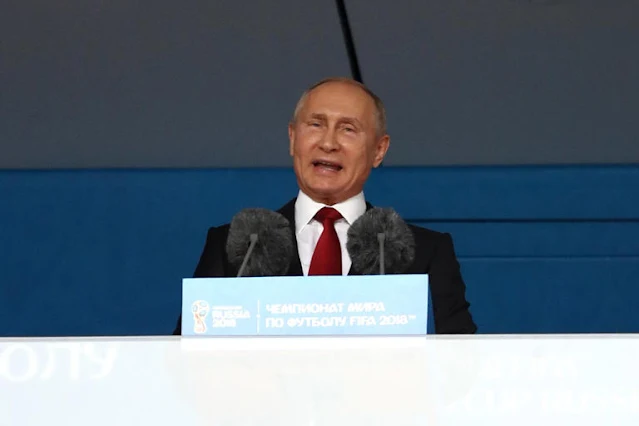During Moscow's solemn military parade commemorating World War II, President Vladimir Putin delivered a stark warning to the West, intensifying his rhetoric as Russia continues its contentious military engagement in Ukraine. Freshly inaugurated for his fifth presidential term, Putin made a chilling vow to the international community, emphasizing the readiness of Russia's strategic forces. "Our strategic forces are always on combat alert. We will not let anyone threaten us," declared Putin, echoing sentiments of defiance and sovereignty. His statement comes amidst a backdrop of rising hostilities, marked notably by the recent resurgence of nuclear sabre-rattling.
The military spectacle on Red Square showcased a formidable display of Russia's military prowess, featuring advanced air defense systems, intercontinental nuclear missile launchers, and a symbolic World War II-era T-34 tank, underscoring the historical weight of the occasion.
Despite unseasonably cold temperatures and visible snow patches, around 9,000 troops participated in the parade, watched by a nation grappling with the implications of ongoing conflict and international isolation.
The event occurs at a critical juncture as Ukraine faces challenges on the battlefield, compounded by delays in international military aid which left it perilously low on ammunition. In a striking development earlier this week, Putin ordered his military to conduct combat drills with tactical nuclear weapons in response to what the Kremlin perceives as "provocative" Western statements, with France discussing the deployment of ground troops to Ukraine and the UK permitting Kyiv to use British weapons for strikes against Russia.
The recent approval of $61 billion in U.S. aid has somewhat lifted spirits in Kyiv, signaling a renewed flow of arms and munitions. Amidst these escalations, Russian diplomatic tensions with the West have also flared.
The Russian Foreign Ministry's spokeswoman, Maria Zakharova, warned that any French troops deployed in Ukraine would become targets for Russia. Both the UK and French ambassadors were summoned, with stern warnings issued against the use of British weapons in Ukrainian counterstrikes.
The enduring conflict, termed the worst in Europe since World War II, has seen Russia and the West locked in a deepening standoff.
Despite severe sanctions from the US and the European Union, Russia has somewhat cushioned the economic blow through strategic trade realignments and robust military and social investments. Nonetheless, Russia's cautious advance in Ukraine, controlling nearly 20% of its territory, reflects Putin's wariness of domestic backlash akin to last year's mobilization, which spurred widespread dissent and emigration.
As Putin leverages historical narratives, likening the current conflict to the Soviet Union's World War II efforts, his international isolation deepens. Few foreign leaders attended this year's parade, a stark contrast to the 60th anniversary celebrations in 2005 attended by over 50 global leaders, highlighting the geopolitical chasm widened since the annexation of Crimea in 2014.
Among the attendees were leaders from Belarus, four Central Asian nations, and representatives from Cuba, Guinea Bissau, and Laos, signaling a diminished but not dissolved sphere of Russian influence.

